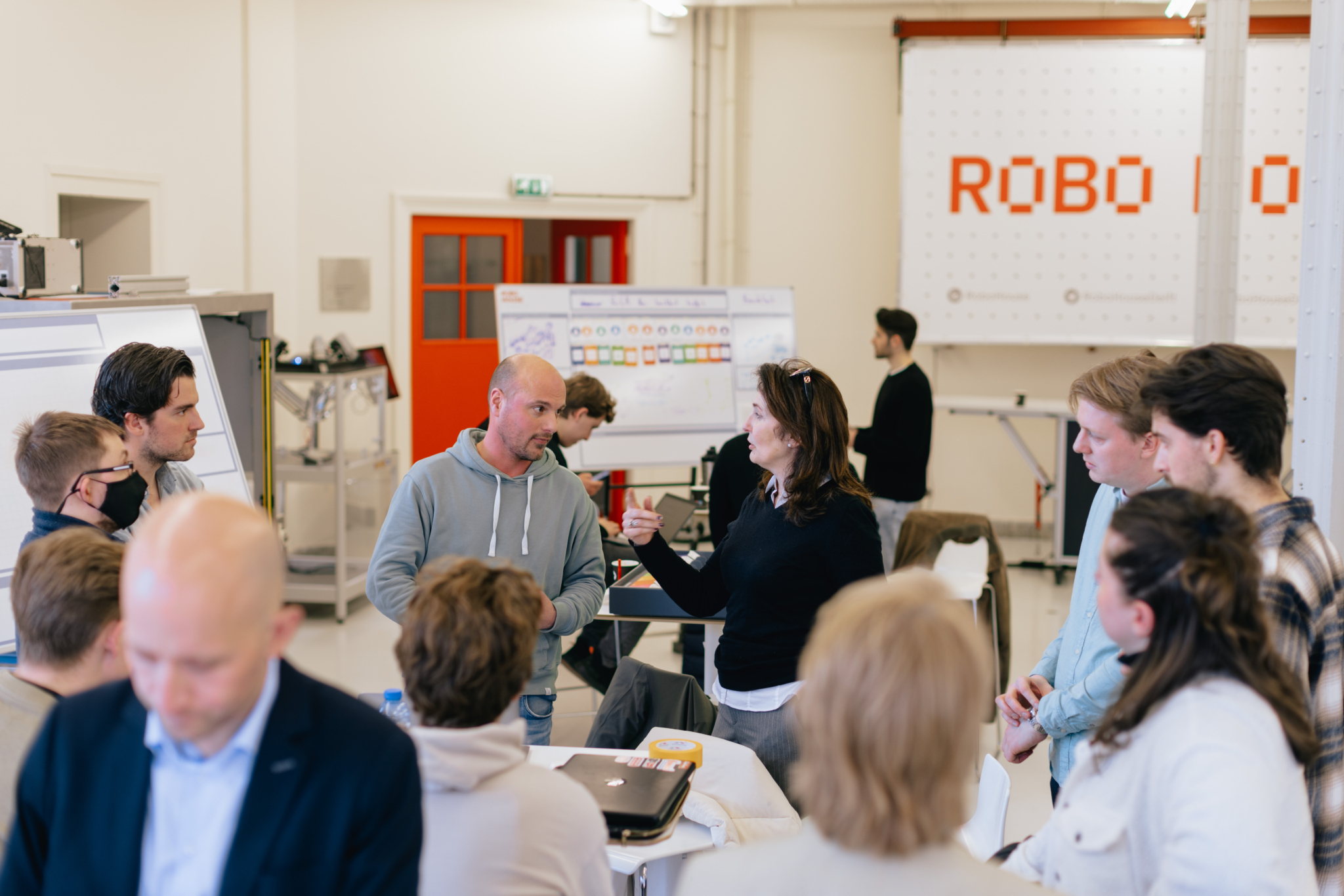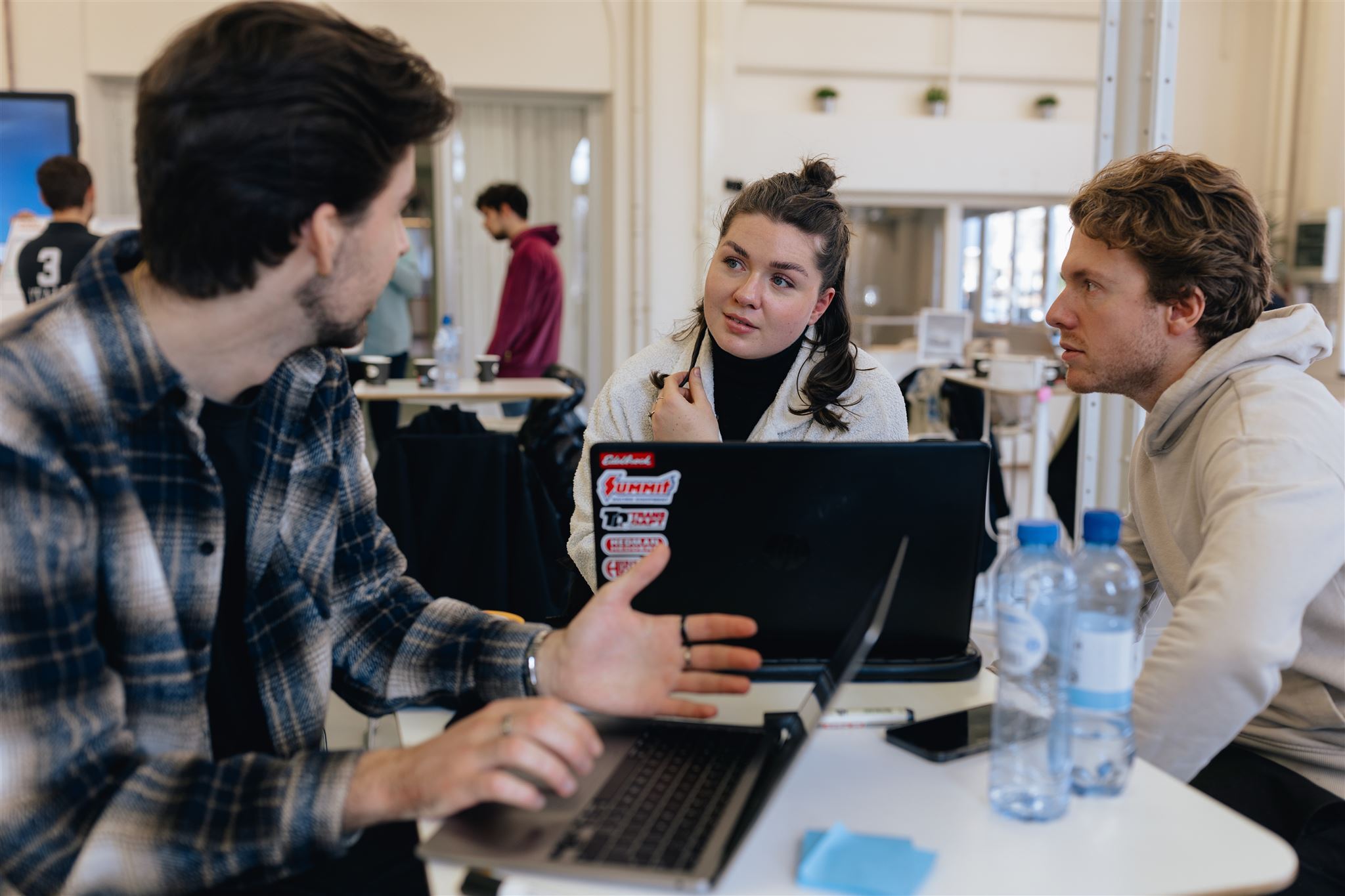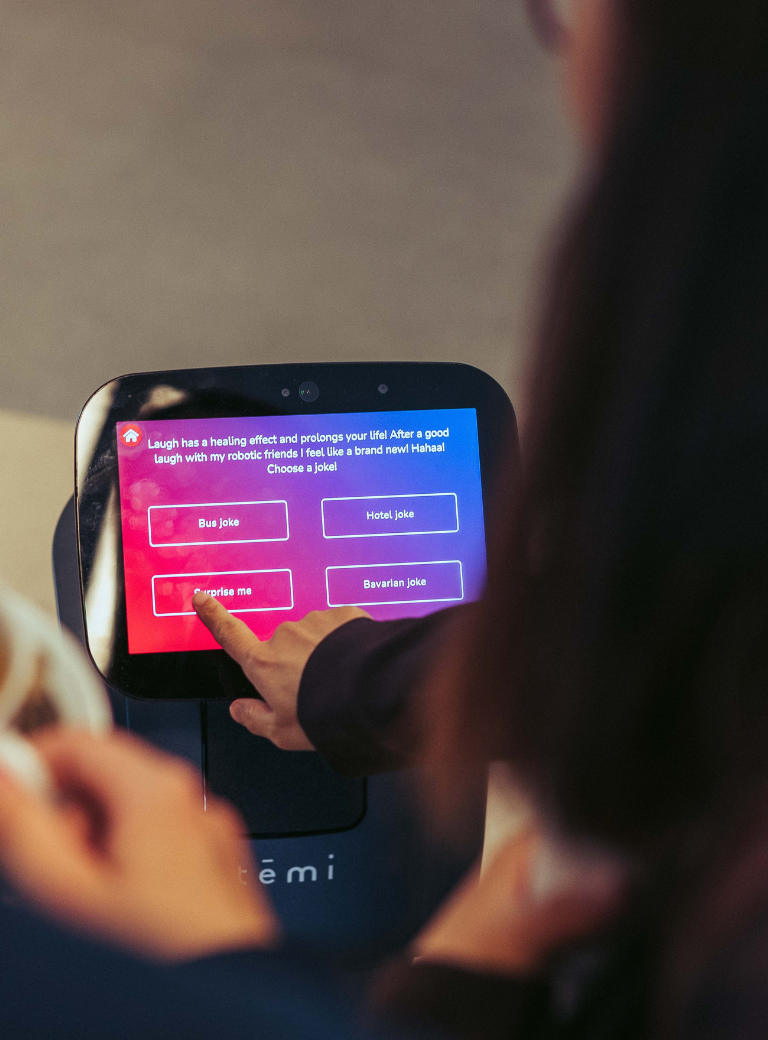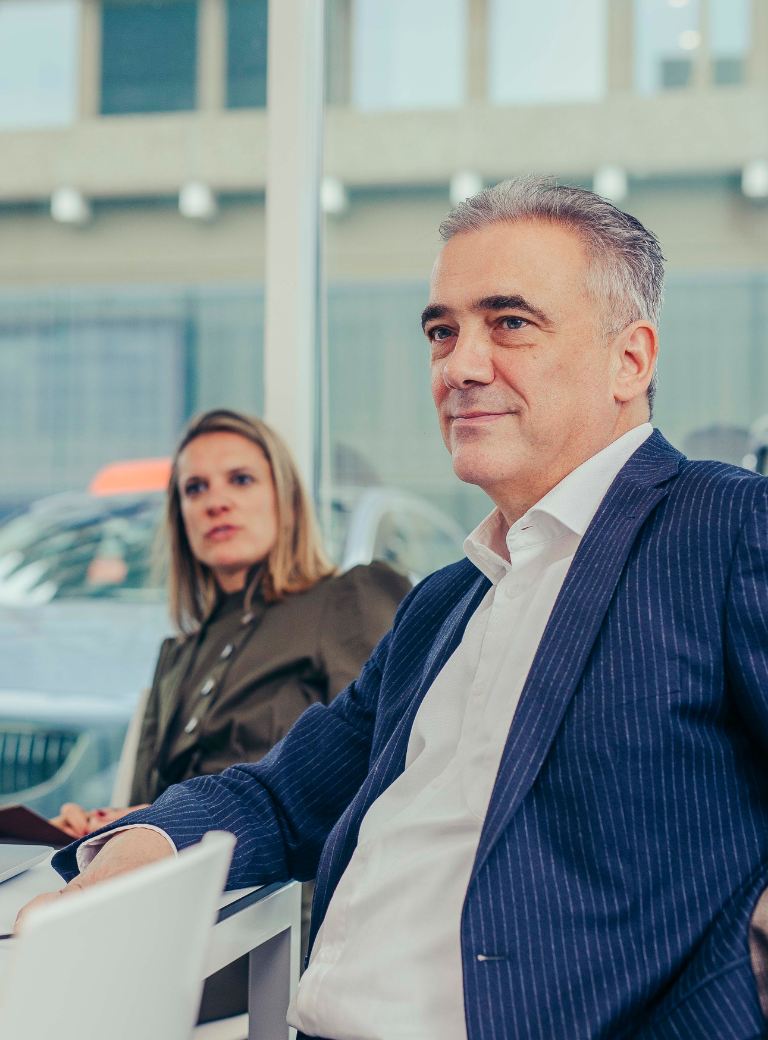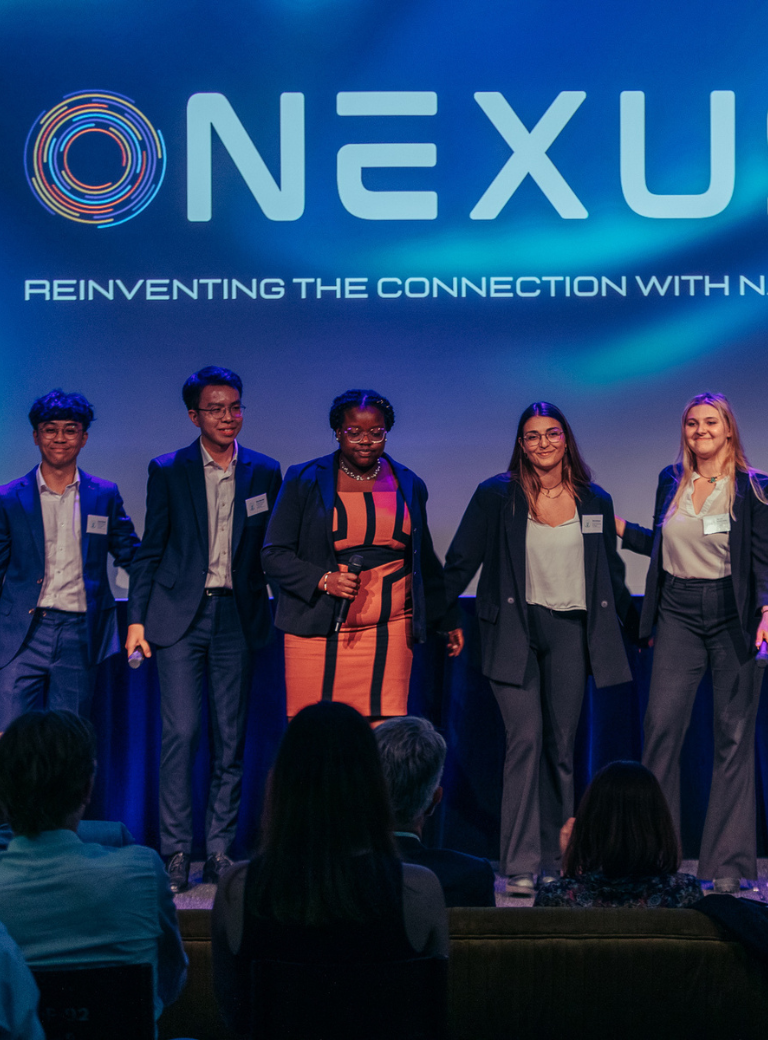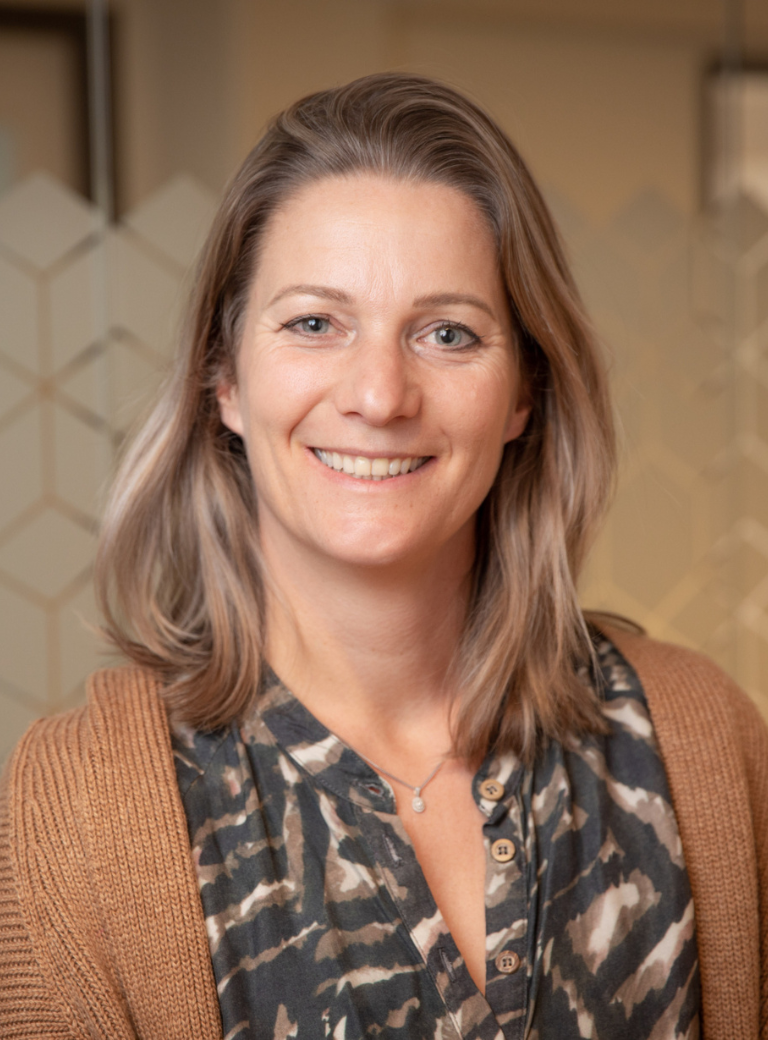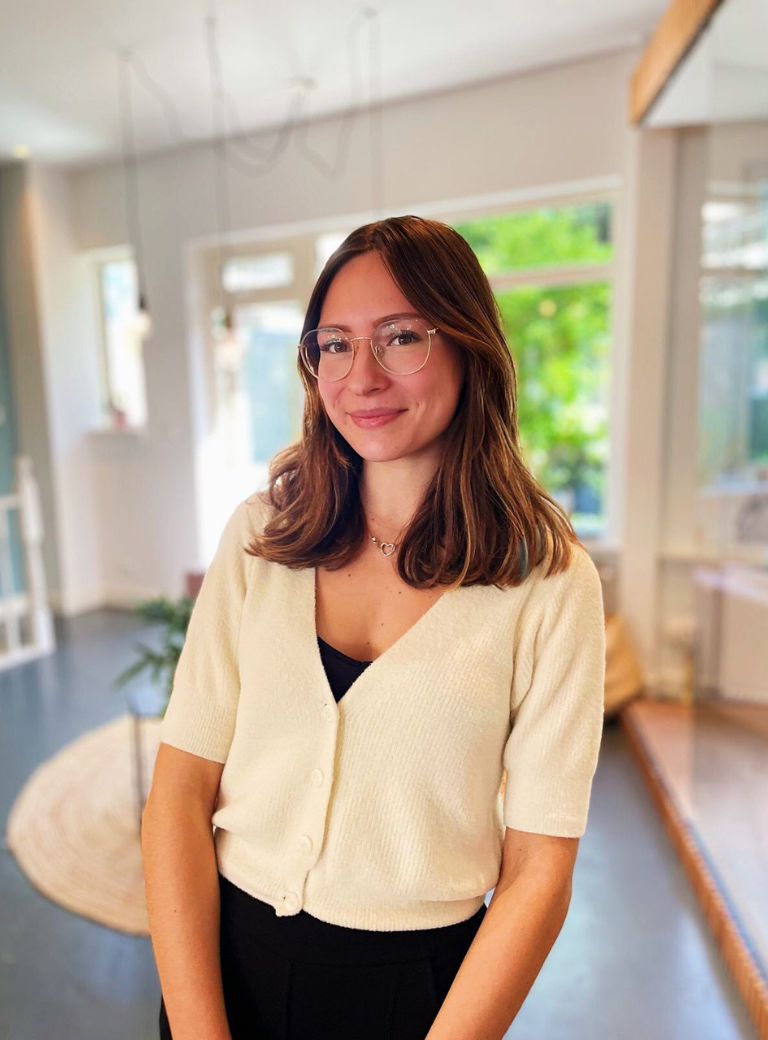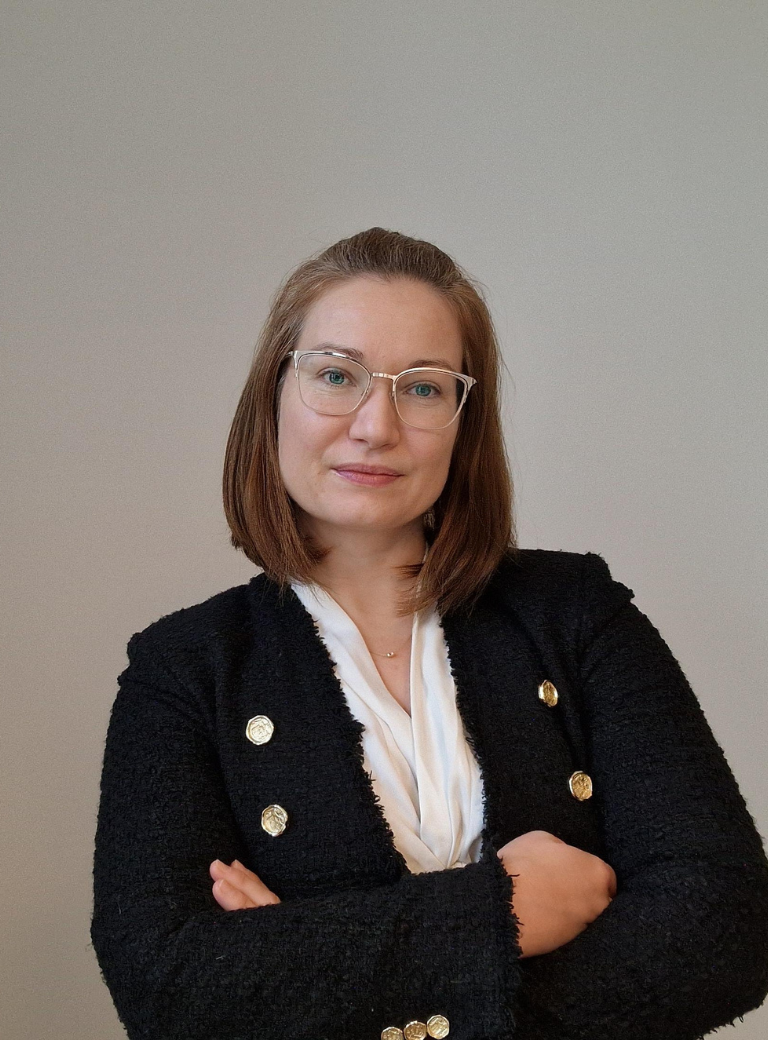
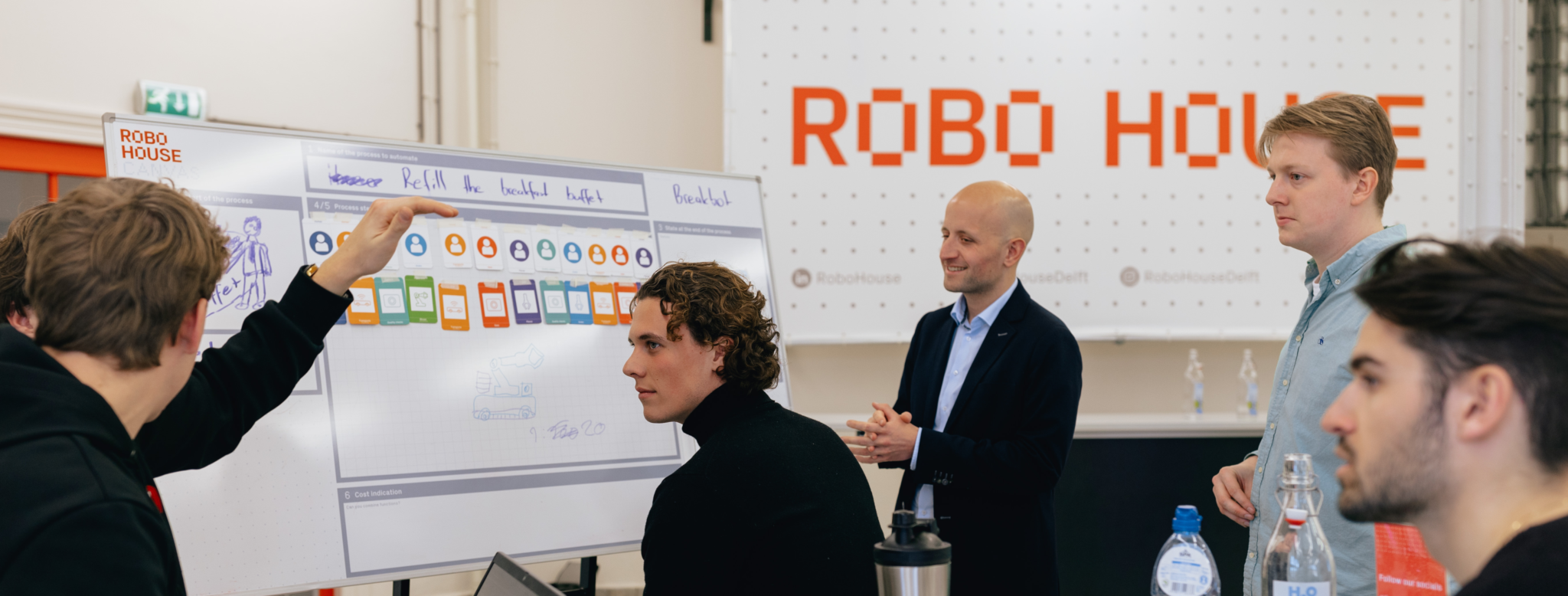
A special canvas session in Robohouse with students of the minor Future of Digitization
Robots differ from humans in several ways. While humans can operate jobs that consist of numerous tasks, robots are designed to operate single ones. Therefore, it stands to reason that when developing hospitality robots, it is important to adapt this task perspective. In collaboration with the Delft University of Technology and Robohouse, Hotelschool The Hague is looking into developing new robots for automating tasks in hospitality that were identified as crucial to automate.
Fourth-year students of the minor Future of Digitisation were enthusiastic to visit the Robohouse in Delft last week. During this day, students joined a lecture from Klaas Koerten, researcher of hospitality robotics at Hotelschool The Hague, toured through the Robohouse, watched a live a demonstration of a restaurant robot, and brainstormed about new types of robots.
After a successful canvas session at Robohouse, Klaas Koerten shared his impressions of the day.
What was the goal of the day?
The goal of the day was to bring Hotelschool The Hague students in contact with Robohouse, give them a first glimpse of what is being done at here, and further acquaint them regarding the collaboration between Hotelschool The Hague and Robohouse. As of spring 2022, the two have been in close collaboration in experimenting with hospitality robots, and experiments have been conducted on-site at Skotel, the education and research centre of Hotelschool The Hague.
In recent years, robots have entered the hospitality industry since automation and self-service tasks are becoming central in the customer experience. The use of robots can be cost effective, more accurate, and save time. However, there is still a lot of on-going research on this topic, as well as doubt about the benefits of robotics. This is why at Hotelschool The Hague we have joined forces with Robohouse; to explore and introduce the ways robotics can become part of it.
Who joined in Robohouse?
Three HTH lecturers and 20 students of our minor Future of Digitization were present during the session. At Robohouse, we were welcomed by Martin Klomp, robotics coordinator/ developer from Robohouse, and Tom Dalhuisen, engineer and founder of Dalco Robotics. Martin Klomp discussed robot building while Tom Dalhuisen gave a nice demonstration and explanation about his hospitality robot, the Rober 2.0. The students seemed to enjoy deep diving into robotics and learning key insights about their development.
What were the main challenges that the group ran into during the day? How were they overcome?
The students used the Canvas method from Robohouse to think of ways various processes in hotels and restaurants can be automated. The challenge was to come up with interesting challenges and opportunities for automation. By consulting Martin Klomp, the Internet and myself, our students found answers and insights about robotic solutions. The processes they chose to automate were fueled by their own experiences of working in hotels and the various challenges encountered there.
Did anything unexpected happen? Were there any serendipitous results?
The students were very enthusiastic during the demonstration from Welbo, and really enjoyed the interactive session. They even provided Tom Dalhuisen with some new insights from their experience in hotels.
Is there anything else interesting to share about this workshop and what will come next?
The ultimate purpose of the collaboration between Hotelschool The Hague and Robohouse is to set up a working lab. In this lab, students and researchers from the Hotelschool The Hague and TU Delft will have the opportunity to design, manufacture and test new robotic solutions for hospitality. This session was the first positive spark in that direction and we are already looking forward to see this project come to life!
About Robohouse: Robohouse is a fieldlab on the campus of TU Delft, where high-end robotics solutions for organisations are being developed. It is an industrial environment designed to encourage learning by doing while creating the settings for the development of robotics, where new ways of working emerge and their impact on productivity and wellbeing can be assessed.
Photos credits: Robohouse

